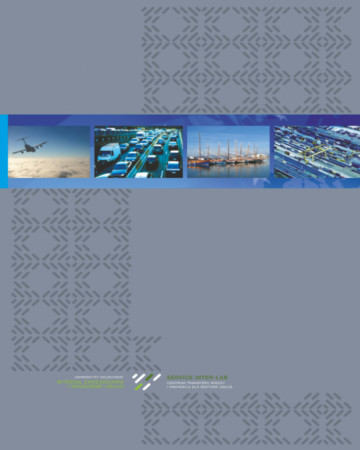
ISSN: 1644-275X
eISSN: 2353-3005
OAI
DOI: 10.18276/ptl.2017.38-06


Issue archive /
nr 2 (38) 2017
The Economic Dimension of the Influence of Sectoral Exemptions on the Dynamics of the Differentiation of the Prices of Original Spare Parts for Engine Vehicles in Poland
| Authors: |
Wojciech
Lewicki
Zachodniopomorski Uniwersytet Ekonomiczny w Szczecinie |
| Keywords: | the economics of transport EU politics sector exemptions legal aspects of transport prices of the spare parts costs of repairs operation |
| Data publikacji całości: | 2017 |
| Page range: | 10 (63-72) |
Abstract
The article presents the considerations concerning the impact of legal regulations in the form of sectoral exemptions on the dynamics of the price differentiation of original spare parts for motor vehicles in Poland. In order to present the economic dimension of the research problem, the case study was used – a numerical experiment consisting of the change analysis of prices of the strictly selected spare parts from the rime of introducing the mentioned legal regulations, until 2017. The intention of the article is to draw attention to the essence of the research issue by demonstrating that the introduction of EU sectoral exemptions, in spite of the improved market competitiveness in the form of the increased availability to other categories of parts, in most cases did not lead to a significant price reduction of new original components on the Polish market of spare parts.
Download file
Article file
Bibliography
| 1. | Abramek, M. Uzdowski, F. (2012). Pojazdy Samochodowe Podstawy obsługiwania i napraw. Warszawa: Wydawca Wydawn¬ictwa Komunikacji i Łączności. |
| 2. | Analiza i ocena ekonomiczna krajowego rynku samochodów osobowych (2016). Warszawa: PZPM. |
| 3. | Burnewicz, J. (2005). Sektor samochodowy Unii Europejskiej. Warszawa: Wydawnictwa Komunikacji i Łączności. |
| 4. | Burda, M., Wyplosz, Ch. (2013). Makroekonomia. Podręcznik europejski. Warszawa: PWE. |
| 5. | Colino, S.M. (2010). Recent Changes in the Regulation of Motor Vehicle Distribution in Europe – Questioning the Logic of Sector-Specific Rules for the Car Industry. Competition Law Review, 6 (2), 203–224. |
| 6. | Commission Regulation (EC) No. 1400/2002 of 31 July 2002 (2002) on the Application of Article 81(3) of the Treaty to Categories of Vertical Agreements and Concerted Practices in the Motor Vehicle Sector OJ L 203, 1.8.2002. |
| 7. | Creutzig, J. (2003). EG-Gruppenfreistellungs-Verordnung (GVO) für den Kraftfahrzeugsektor. Heidelberg–Berlin: Verlag Recht und Wirtschaft GmbH. |
| 8. | Instrukcja programu Eurotax (2017). Warszawa. |
| 9. | Kaliszuk, E., Ambroziak Ł., Błaszuk-Zawiła M., Kozłowski Z. (2011). Zmiany konkurencyjności przemysłu motoryzacyjnego Czech, Polski, Słowacji i Węgier w latach 2000-2009. Warszawa: IBKiK. |
| 10. | Koźlak, A. (2007). Ekonomika transportu. Teoria i praktyka gospodarcza. Gdańsk: Wydawnictwo Uniwersytetu Gdańskiego. |
| 11. | Lewicki, W. (2014). Ekonomiczne skutki wyłączeń sektorowych na rynku motoryzacyjnym w Polsce – analiza kosztów napraw samochodów osobowych. Folia Pomeranae Universitatis Technologiae Stetinensis seria OECONOMICA, 76, 73–78. |
| 12. | Nowak, J. (2004). Bezpieczeństwo samochodów i ruchu drogowego. Warszawa: Wydawnictwa Komunikacji i Łączności. |
| 13. | Rozporządzenie Rady Ministrów z dnia 8 października 2010 r. w sprawie wyłączenia określonych porozumień wertykalnych w sektorze pojazdów samochodowych spod zakazu porozumień ograniczających konkurencję. Dz.U. 2010, nr 198, poz. 1315. |
| 14. | Sprzedaż samochodów osobowych i dostawczych (2017). Warszawa: PZPM. |
| 15. | Stan branży motoryzacyjnej oraz jej rola w polskiej gospodarce (2013). Warszawa: KPMG. |
| 16. | Szymonik, A. (2013). Ekonomika transportu dla potrzeb logistyka. Teoria i praktyka. Warszawa: Difin. |
| 17. | Zieliński, A (2008). Konstrukcja nadwozi samochodów osobowych i pochodnych. Warszawa: Wydawnictwa Komunikacji i Łączności. |
| 18. | Zucke, S., De Stefano, G. (2010). EC Motor Vehicle Block Exemption Reform: Are You Ready for the New Regime? Euro¬pean Competition Law Review, 3, 93–97. |